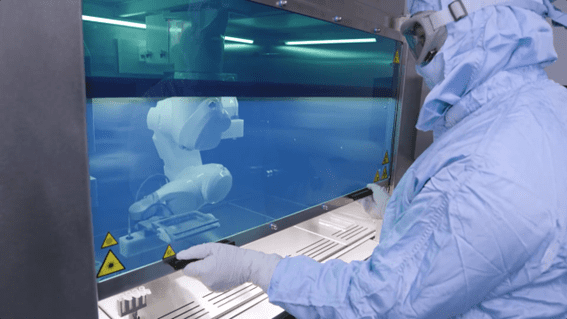18 September, 2024
4D-Bioskin project (Advanced Therapies)
THE UNIVERSITY OF BARCELONA PARTICIPATES IN A CONSORTIUM TO VALIDATE AND SCALE-UP THE HUMAN SKIN PRODUCTION GENERATED BY A 3D BIOPRINTER
- This project of personalized and regenerative medicine will carry out the first clinical trial in Spain to treat burns and skin wounds with bioprinted autologous human skin substitutes.
- The consortium, integrated by public and private entities, has received a grant of 684.822,88 euros within the framework of the Public-Private Collaboration Projects call of the State Research Agency.
The 4D-Bioskin project – Validation and scale-up strategy of bioprinted tissues for medical applications; a skin substitute – covers the development and translation of autologous skin tissue manufacturing for clinical practices. The project focuses on the optimization of the cell growth and bioink development protocols, the assessment of the viability of industrialization and commercialization of biomanufacturing, the digitalization of the process to enhance the scale-up, and the achievement of the validation of bioprinted skin tissues to be used in clinical trials.

The development of this innovative therapy based on skin bioprinting is a potential therapeutic alternative for the treatment of burns and skin wounds that will have a great impact on society and the healthcare system. According to the World Health Organization (WHO), burns cause around 180.000 annual deaths. In addition, non-fatal cases are closely related to infectious episodes, prolonged hospitalizations and/or mental traumas. During the three years that the project lasts for, a multidisciplinary team involving clinicians, biomedical researchers, biomedical engineers and experts from the pharmaceutical and industrial sectors from seven public and private institutions will work together to develop this innovative therapeutic alternative. The project consortium is coordinated by the biomedical engineering firm Biorem, and also includes public entities – University of Barcelona (UB), the IMIB through Foundation for Health Research and Training in the Region of Murcia (FFIS) and Vall d’Hebron Research Institute (VHIR) – and other private companies – Reig Jofre Laboratories SA, Peaches Biotech SL and Biocrosmo SL. “The 4D-Bioskin project is the seed for the research, development and industrial development of innovative tissue engineering therapies that will boost the Spanish State economy and the Spanish biomedical leadership and international recognition”, explains Dr. Josep M. Canals, director of Creatio – Production and Validation Center of Advanced Therapies of the University of Barcelona– and professor at the Faculty of Medicine and Health Sciences of the UB.
The objective of the project is to improve the value chain of the biofabrication of 3D bioprinted tissues through the validation, production and commercialization scale-up of autologous skin substitutes. As a proof of concept, a clinical trial will be carried out in the facilities of the Vall d’Hebron University Hospital – VHIR and the Virgen de la Arrixaca University Hospital – FFIS in pediatric patients affected by burns. These patients will be treated with autologous skin substitutes that will be generated during the project from the same patients’ cells. The cells will be integrated into a collagen matrix covered by a second layer of skin cells. This “artificial skin” will be manufactured with the only 3D bioprinter currently certified for the fabrication of bioprinted products in Spain. The bioprinter is located at the Creatio facilities, at the University of Barcelona. The trial will evaluate aspects related to the efficacy of the treatment, such as the integration of the implant into the patients’ tissues, growth and formation of mature and scar tissue, and healing time, as well as aspects related to its safety, such as the appearance of possible adverse effects.
The CPP2022-009969 project funded by MICIU/AEI /10.13039/501100011033 and by the European Union NextGenerationEU/PRTR, has obtained funding of 684,822.88 euros, of which 172.650 euros have been awarded to the UB.
